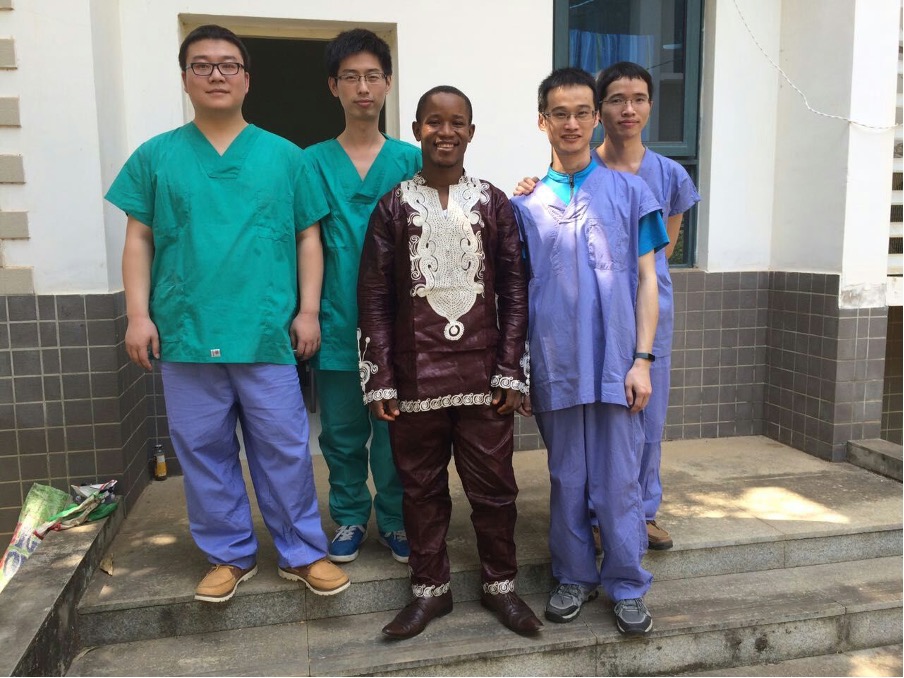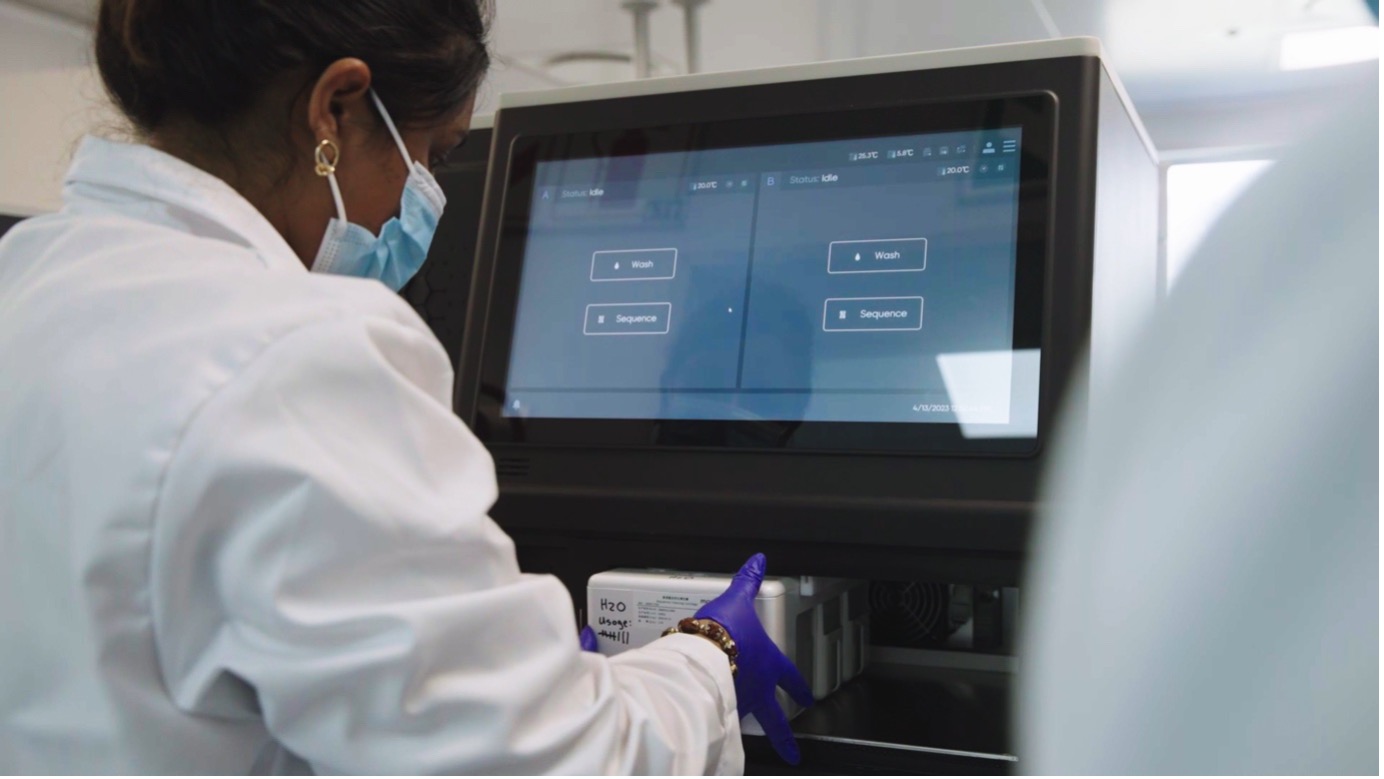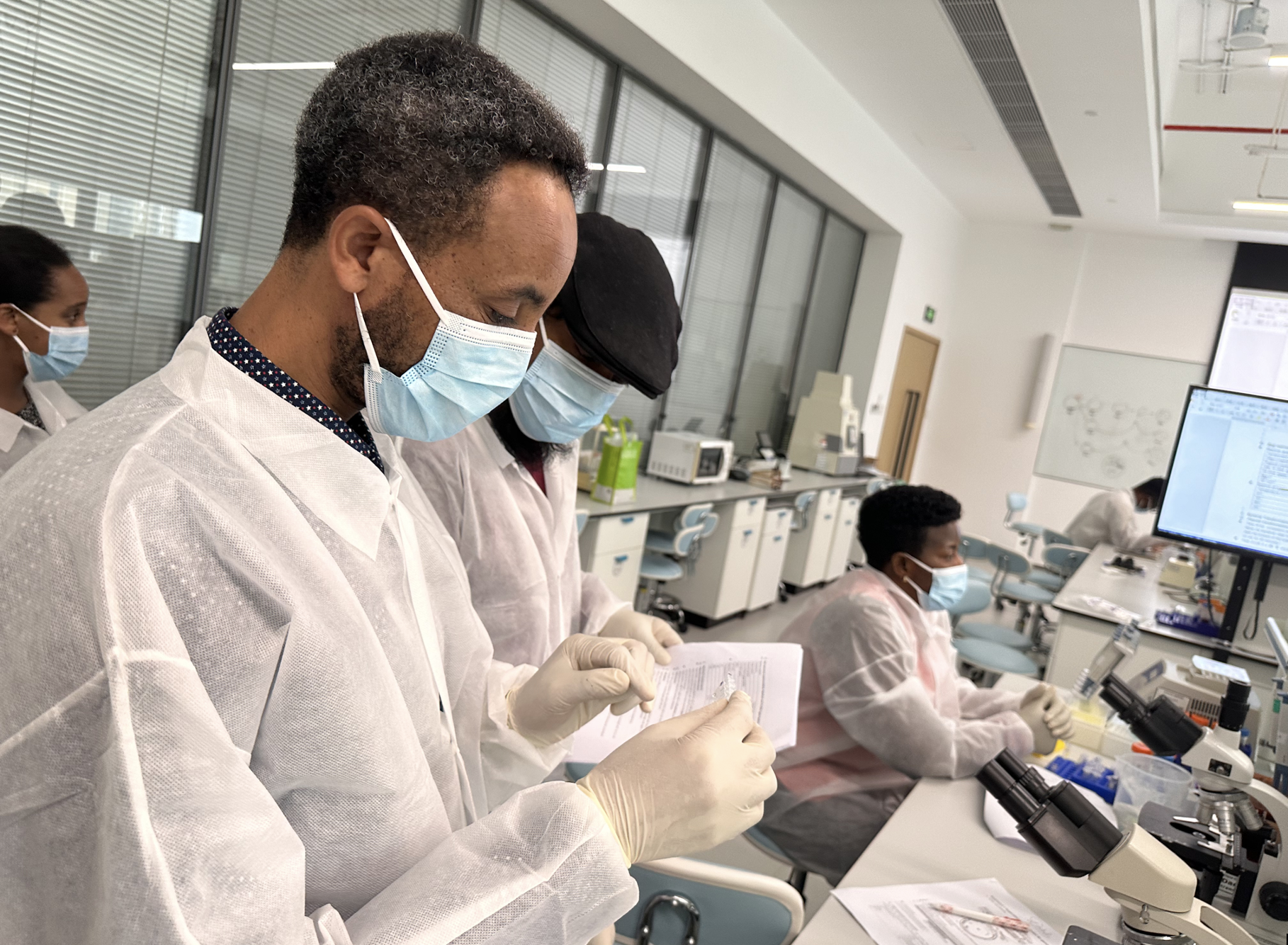Since its founding in 1999, BGI has been committed to using its scientific knowledge, research, solutions and technology for the good of humankind, captured in its mission of ‘Omics for All’. This has kept the company in the frontline of disease identification and response from SARS to COVID-19, and also helped make it into an important provider of public health solutions globally, working closely with health ministries and governments.
In Africa, BGI Group has been contributing to disease control and public health development for a decade. With a population of 1.4 billion spread across 54 countries and wide-ranging annual GDPs per capita, health care services are often severely stretched and having to contend with health challenges such as infectious diseases, malnutrition, and maternal health crises. BGI’s response has been to focus on three key areas; disease surveillance and response, genomic technology solutions, and capacity building and training.
Disease Surveillance and Response
BGI’s experience in using sequencing in disease identification and management during SARS in 2003 and then during the outbreak of E. coli in Germany in 2011 where the BGI team completed genome sequencing of the samples, published the data to the international scientific community for free, and successfully developed a diagnostic kit for the disease, not only helped to speed up the control of the epidemic but also established a foundational framework for how BGI would tackle diseases in the future.
In 2014, West Africa experienced a significant Ebola virus outbreak that started in Guinea and quickly spread to other countries. It gained global attention due to its rapid spread and high mortality rate.
 In 2015, four BGI volunteers together with local people in Sierra Leone. BGI provided technical support with advanced sequencing equipment and diagnostic reagents, aiding in the local fight against Ebola during the 2014 outbreak.
In 2015, four BGI volunteers together with local people in Sierra Leone. BGI provided technical support with advanced sequencing equipment and diagnostic reagents, aiding in the local fight against Ebola during the 2014 outbreak.
In January 2015, four volunteers from BGI went to Freetown, the capital of Sierra Leone, to provide technical support with advanced sequencing equipment and diagnostic reagents, aiding in the local fight against Ebola and assisting a team from Chinese Center for Disease Control and Prevention in testing virus samples and providing technical support and training.
By January 2015 the epidemic had already been spreading for several months and there was a lot of misinformation about the disease, particularly around its mutations. There was speculation that the virus had undergone significant mutation and this had led to the widespread transmission. The BGI team undertook sequencing and analysis of 175 strains of the Ebola virus and were able to categorically confirm that the outbreak had not exceeded the previous mutation rate. This scientific evidence helped Sierra Leone to formulate specific public health strategies to tackle the disease. BGI also developed an Ebola rapid detection reagent, contributing to local epidemic prevention and control efforts.
Wang Jian, Co-founder and Chairman of BGI Group, has always made it clear that BGI’s commitment to tackling health crises is an essential part of the company’s DNA: “When a health emergency strikes, BGI has a duty to be the first in line to provide help.”
The COVID-19 pandemic demonstrated to the world how BGI lived up to this responsibility globally. In January 2020 BGI sequenced the underlying COVID virus and developed a nucleic acid PCR test kit for the virus within 72 hours, which in the coming months was certified for use in 14 countries and regions and by the World Health Organisation (WHO) for emergency use. To provide testing facilities, BGI developed an integrated high-throughput nucleic acid inflatable and portable testing laboratory, named a Huo-Yan lab. By the end of 2021, BGI has launched nearly 100 Huo-Yan laboratories overseas, distributed in more than 30 countries and regions around the world.
In Africa, BGI provided COVID-19 test kits to African countries, supporting large-scale testing and improving the local ability to detect and isolate cases. The provision of these kits helped countries such as Ethiopia, South Africa, Nigeria, Gabon, Uganda and others to significantly ramp up their testing capacities; a critical aspect of managing the pandemic.
BGI also built Huo-Yan laboratories in African countries to help with large-scale diagnostics and sequencing. In addition to identifying people carrying the COVID-19 virus, the laboratories provided advanced molecular diagnostic capabilities, enabling quick identification of COVID-19 variants, as well as other infectious agents. The use of this technology was transformative, particularly in countries where healthcare systems were struggling with limited diagnostic capacities.
Beyond COVID-19, BGI’s efforts have focused on understanding the genetic diversity of diseases that disproportionately affect African populations, such as malaria and tuberculosis. By using next-generation sequencing technologies, BGI is contributing to more accurate diagnostics and the development of treatments tailored to the unique genetic and environmental contexts of African populations.
One area of BGI’s involvement has been with cervical cancer. WHO has reported that 16 countries in Africa account for nearly 16% of global cervical cancer mortality. One of those countries is Rwanda where cervical cancer is a leading cause of cancer-related deaths among women, mainly due to late diagnosis and limited access to healthcare services. In response, Rwanda has prioritized early detection and prevention strategies, and BGI has collaborated with Rwandan health officials to enhance cervical cancer screening efforts, aiming to reduce the country’s burden of the disease.
In April 2024, BGI Genomics, in collaboration with the Rwanda Biomedical Centre (RBC) initiated a cervical cancer screening program in Ngoma District in the Eastern Province of Rwanda. This collaboration involves providing 20,000 human papillomavirus (HPV) DNA tests to local women, bolstering cervical cancer prevention and control.
Dr. Albert Tuyishime, Head of the HIV/AIDS Disease Prevention and Control Department at RBC, remarked, "We value our collaboration with BGI Genomics, which has enhanced screening services in the Ngoma district, and look forward to extending these services across the country."
This program is part of a broader effort to enhance the local healthcare system and will include the introduction by BGI of a number of advanced genetic testing technologies for various diseases.
Genomic Technology Solutions
A key component of improving public health in Africa is strengthening the technological and industrial infrastructure that underpins healthcare systems. In the early stages of the COVID pandemic, BGI partnered with the Ethiopian government to establish a local reagent manufacturing facility. This collaboration marks a significant step in bolstering the country’s healthcare infrastructure and advancing its capacity for diagnostics, and medical testing. The manufacturing facility helps reduce dependency on imports by locally producing reagents, thus ensuring a more reliable and timely supply chain for diagnostic testing. It can also help provide supplies to other African countries.
BGI has also helped African nations adopt state-of-the-art genomic technologies, including high-throughput sequencing, gene editing, and bioinformatics. In South Africa, The South African Medical Research Council (SAMRC), under the supervision of the National Department of Health, has a long term focus on precision medicine which led to the development of the SAMRC Genomics Platform in 2019. The facility is dedicated to the study of African-specific genomics for the purposes of creating solutions tailored to the healthcare needs of the local population.
 A technician at the South African Medical Research Council (SAMRC) operates a gene sequencer provided by BGI Group.
A technician at the South African Medical Research Council (SAMRC) operates a gene sequencer provided by BGI Group.
Prof. Craig Kinnear, Director of the SAMRC Genomics Platform explains: “We wanted to make genomics more accessible to South African researchers as the basis for developing individualised healthcare strategies for patients. We needed a partner that has experience and knowledge in precision medicine and BGI was a natural fit, with many researchers in South Africa already working with BGI.”
BGI collaborated with SAMRC to clarify the needs of the center and provided the equipment, training and technical support to ensure its smooth functioning. To improve sequencing capabilities, In 2023 BGI provided a gene sequencer to SAMRC in addition to the sequencers it already possessed, making it the largest genomics center in Africa, and an important achievement in the field of medical and health cooperation between China and South Africa.
Capacity Building and Training
For sustainable improvements in public health, the development of local expertise is essential. BGI has recognized this need and supports capacity building across the continent.
In all of its major activities in Africa, from cervical cancer programs to managing disease outbreaks and to working with healthcare organizations, BGI has provided extensive on-the-ground training and on-going support to healthcare professionals, scientists and researchers. In addition, exchange programs enable students and researchers to spend extended periods of time with BGI at its facilities in China and more extensive education opportunities are provided through BGI-College and other programs.
 In September 2024, students of the "Training Course on Laboratory Technology of Disease Control for African English-speaking Countries" program receive training in BGI Group’s lab.
In September 2024, students of the "Training Course on Laboratory Technology of Disease Control for African English-speaking Countries" program receive training in BGI Group’s lab.
In September 2024, BGI College co-hosted the "Training Course on Laboratory Technology of Disease Control for African English-speaking Countries". The program aims to train laboratory professionals from the African Union and various African countries, supporting African CDC laboratory technicians in receiving training and internships in China. The curriculum includes specialized knowledge in areas such as bioinformatics and high-throughput sequencing technologies. A total of 37 participants from 27 African countries are taking part in the program.
BGI hopes that these training initiatives will produce a cadre of African researchers and healthcare workers capable of conducting high-level genomic research, providing the foundation for future advances in disease diagnostics and treatment.
BGI’s involvement in Africa’s public health landscape has been transformative. Through its investments in genomic technology, disease diagnostics, and capacity building, the company has significantly contributed to the development of more resilient and effective healthcare systems across the continent. By empowering local scientists and health professionals, and by providing cutting-edge infrastructure, BGI has enabled African nations to address current health challenges while preparing for future ones.
BGI’s continued engagement in Africa holds the promise of not only improving the continent’s public health outcomes but also contributing to global health security. The collaboration between BGI and African countries is a testament to the power of international partnerships in addressing some of the world’s most pressing health issues.
Source:
Communicable And Non-Communicable Diseases In Africa In 2021/22. World Health Organization. https://www.afro.who.int/sites/default/files/2023-08/Disease%20outlook%20report_BLF_revised_190823_AHN.pdf
Healthcare provider challenges to early detection of cervical cancer at primary healthcare level in Rwanda. Gynecologic Oncology Reports. https://www.ncbi.nlm.nih.gov/pmc/articles/PMC8239804/



